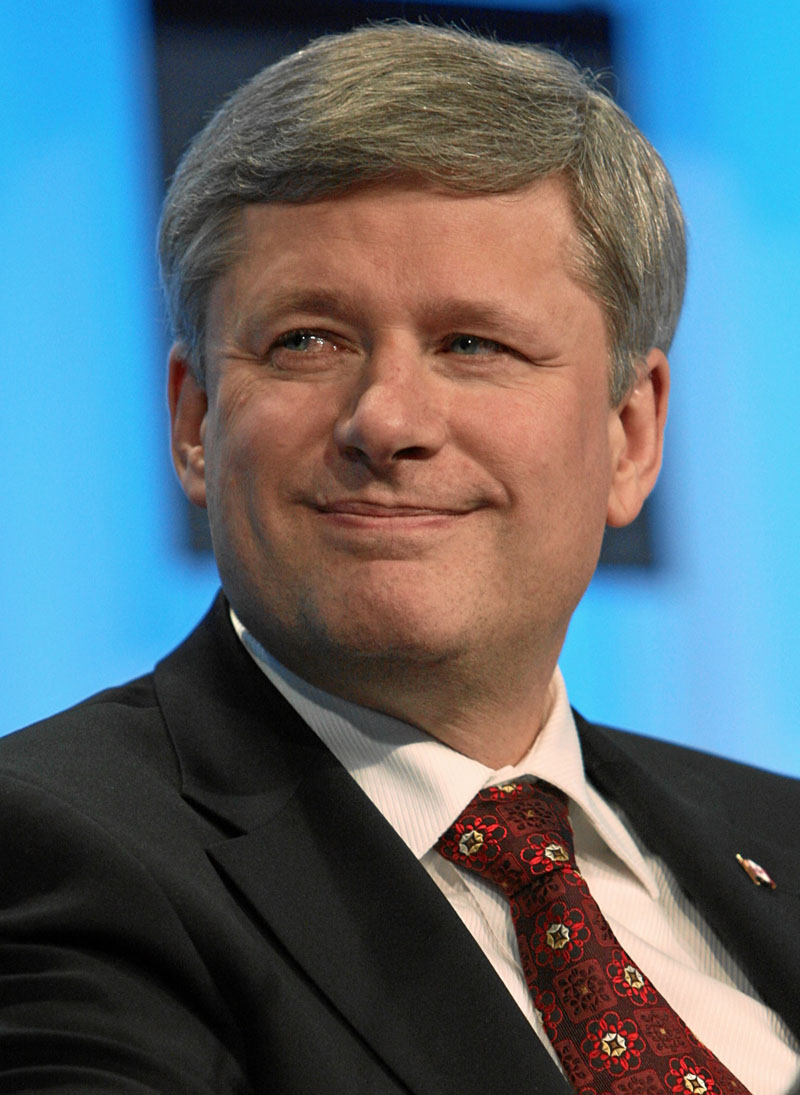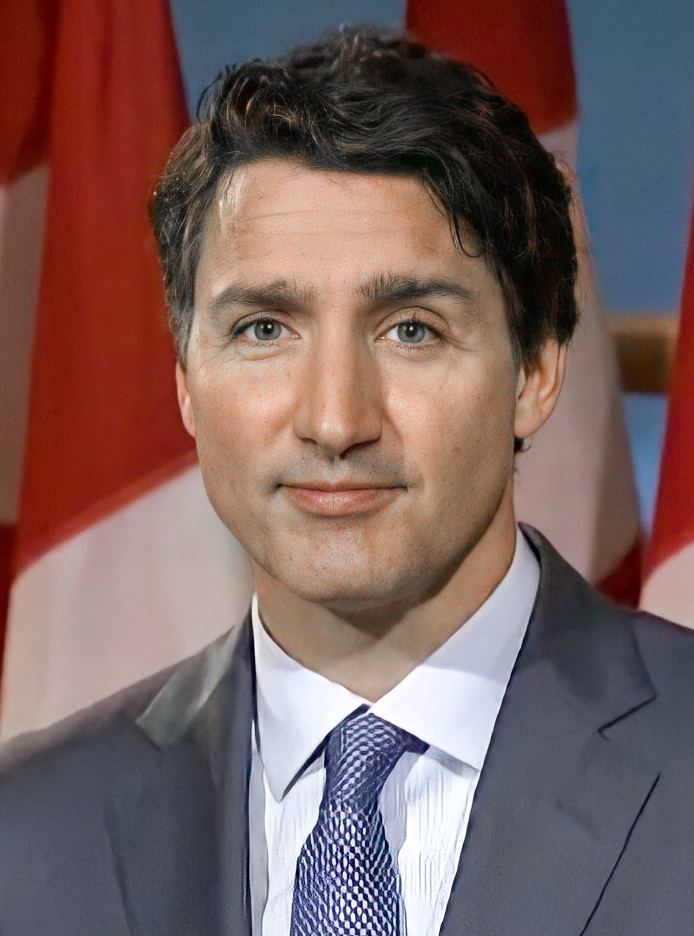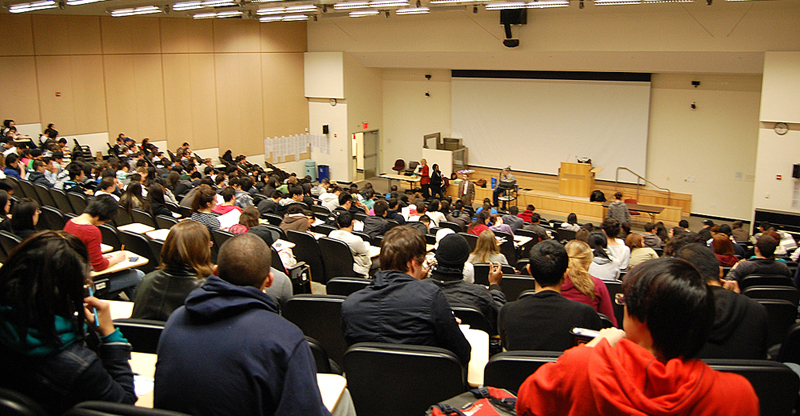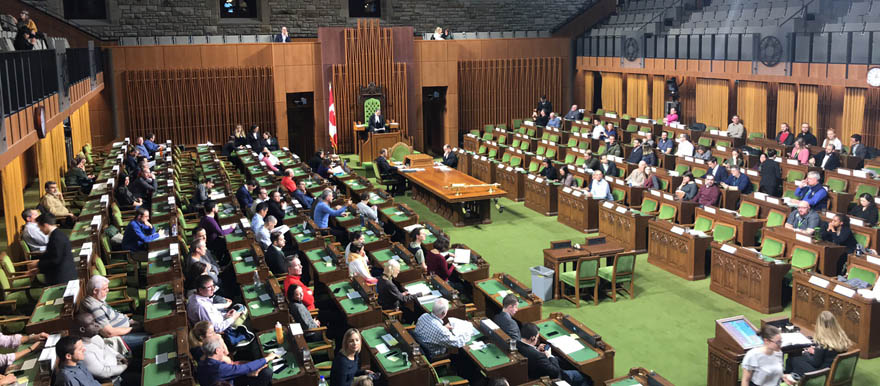Overcoming Political Amnesia #1
October 1, 2021
The Chimera of Canada’s Fixed-Date Elections
During more than a century a political norm emerged in Canada that electing a fresh Parliament once every four years was about right, despite the Constitution allowing five years between trips to the polls. So in 2007 Parliament amended the Canada Elections Act to specifically provide that each general election is to “take place on the third Monday in October in the fourth calendar year after the previous poll.”
 |
|
Prime Minister Stephen Harper introduced an amendment to the Canada Elections Act in 2007 to fix general election dates once every four years, claiming it “leveled the playing field” and “made the rules fair for everybody. The following year he forgot his reform and caused a general election to take place. Photo courtesy WikiMedia |
Prime Minister Stephen Harper, when advancing this measure for rationality and fairness, explained that “Fixed election dates prevent governments from calling snap elections for short-term political advantage. They level the playing field for all parties and the rules are clear for everybody.” Yet the following year Mr. Harper himself sought and received an early dissolution of Parliament from Governor General Michaëlle Jean for the September 2008 general election.
Now two prime ministers have forgotten that Canadian election law establishes fixed dates for general elections. In 2021, pleased to follow the Harper precedent, Prime Minister Justin Trudeau sought and received a premature dissolution from Governor General Mary May Simon.
 |
|
Prime Minister Justin Trudeau also ignored the fixed-date law, followed Prime Minister Harper’s lead, and caused a general election to take place prematurely in personal hopes of winning a majority. However, NDP leader Jagmeet Sing had made clear his party would not defeat the Liberals and trigger an election, Mr. Trudeau’s minority Liberal government had effective control of the Commons, and the prime minister faced no serious problems getting the Liberal Government’s program through Parliament. Photo courtesy WikiMedia |
Both men evidently made persuasive cases that the Crown should ignore the Election Act’s intent, despite the fact neither of their minority governments had been defeated in the House of Commons. When that happens, an election must be held. Defeat on a major matter (a “vote of confidence”) means the current government no longer has the level of support from the peoples’ elected representatives it requires in order to govern. In such a case, the amended Canada Elections Act provides, the four-year span begins running from the date of this intervening but necessary election. A perfect blending of the new rule with traditional parliamentary practice.
Yet here’s the rub. The 2007 amendment was one of those wiggle-room provisions that makes it optional. Despite the principle that nobody is above the law – a fundamental precept of Canada’s Constitution – there is no penalty for violating the fixed-date law. What good, you ask, is a law that does not need to be obeyed by the prime ministers to whom it applies?
Answer: It becomes an Exhibit ‘A’ class-room example for political science professors teaching upcoming generations how Canadian governments and parliaments enjoy pushing an empty wheelbarrow. An amendment to the Election Act, as made in 2007, allows posing as a democrat, an egalitarian, a reformer – while the measure itself is a sham.
 |
|
From one abandoning his electoral mandate to abolish the unelected and unaccountable Senate of Canada, to the other jettisoning an electoral mandate to implement proportional representation, and both together ignoring the law’s intent for rationally scheduled elections, prime ministers Stephen Harper and Justin Trudeau provide political science professors fresh material for teaching how Canada’s leaders and institutions they control push an empty wheelbarrow when delivering for democracy in Canada. Photo courtesy WikiMedia |
The small reform imposing fixed dates for general elections had big benefits. Prospective candidates hoping to seek a nomination would know when to seek a leave of absence from their jobs. Incumbent MPs and their electoral district associations would know when to raise extra funds, obtain lawn signs, and prepare other campaign material. Civil servants would be able to judge the timing of events free from the conundrums of electoral uncertainty. Contractors supplying the government or doing business with it understood the framework within which they were realistically operating. News organizations could plan and schedule effective coverage. Those booking broadcast airtime, whether for partisan messages or leadership debates, could do so without having to second-guess. Elections Canada and its thousands of event-specific employees with their scattered facilities, equipment, training, forms, voters’ lists, and procedures could carefully plan within a known calendar and more effectively deliver the sequenced events that election law requires.
 |
|
On September 20, 2021 Canadians again lined up at the polls when it suited Prime Minister Justin Trudeau’s ambition to win a majority of seats in the Commons, despite the fact his legislative program was not being curtailed by the Opposition. In the midst of a pandemic, voter turnout was very low, the reduced number of polling stations due to Covid meant increased problems for electors, the party standings remained unchanged, and these voters and other Canadians paid $600 million for an election which will be remembered as the most forgettable event in Canadian political history. Photo courtesy CTV News |
With so many benefits, it is more than a pity that “the level playing field for all parties” can still be tilted and “rules that are clear for everybody” can be abrogated by prime ministers who remain above a law enacted with the loophole giving them discretionary power about compliance.
This, regrettably, is not a one-off. It is part of the transcending double challenge facing all of Canada’s election laws. First they are tailored to suit parties in office, and then they are enacted by those same parties’ members who have the legislative power to do so. For example, at various times nationally and provincially political parties of all stripes have campaigned strenuously for proportional representation, only to squelch the deal they made with voters after winning an electoral mandate – enough MPs in the Commons or provincial legislature – to alter the electoral system. Parliament’s enactment of an “optional” fixed-date election law reflects this essential fraud on the public.
 |
|
Members of the House of Commons enacted a law to remove the power of prime ministers to call elections when it best suited their own partisan interests. It was a day celebrated for the maturing of Canadian democracy. However, the fixed-date amendment to the Canada Elections Act was a sham, as now two prime ministers have made clear. Photo courtesy WikiMedia |
Because the established political parties themselves nibble complacently around the edges of democracy, it fell to Democracy Watch to mount a court challenge to Prime Minister Harper’s breach of his own fixed-date election law. Federal Court of Canada Judge Michel M. J. Shore, having to deal with an event after it had happened – a general election beyond recall or practical remedy – accordingly dismissed the case on September 17, 2009. While he understandably ducked the issue raised in Conacher v. Canada (Prime Minister) by deciding that the fixed election date enactment was not binding on the prime minister or legally enforceable by the courts, he went on to gratuitously opine that applicant Duff Conacher, a lawyer and the founder of Democracy Watch, “did not demonstrate a proper understanding of the separation of powers,” then even proceeded to offer a mystical non-sequitur. According to Judge Shore, “the remedy for the applicant’s contention is not for the Federal Court to decide, but rather one of the count of the ballot box.” Just how that is meant to work, Justice Shore did not attempt to explain.
 |
|
Duff Conacher, a lawyer and the founder of Democracy Watch, challenged the decision to call a preemptory early election in 2008 instead of the date fixed by the Canada Elections Act. His legal action against Prime Minister Harper, the Governor General, and the Crown-in-Council was dismissed by a Federal Court Judge who ruled that the law Parliament had enacted was unenforceable because it was optional. In that alone, Mr. Conacher had made a damning point about leaders who merely surf-ride democracy. Photo courtesy Mr. Conacher’s Twitter account |
Given that this measure is essentially pretence, we can forget about fixed-date elections for the House of Commons. Unless, that is, an MP introduces a private member’s bill to make it mandatory and makes a cause of it. Imposing a sanction might help in this. Perhaps a fine equal to the cost of an unnecessary and unlawful election? Despite being a millionaire, Prime Minister Justin Trudeau might have balked at the prospect of a $600 million fine.
My next blog will cover a second lesson to remember from September 2021: the Fading Advantages of “Majority” government.
Copyright © 2023 || Website Development by E-griculture.com
